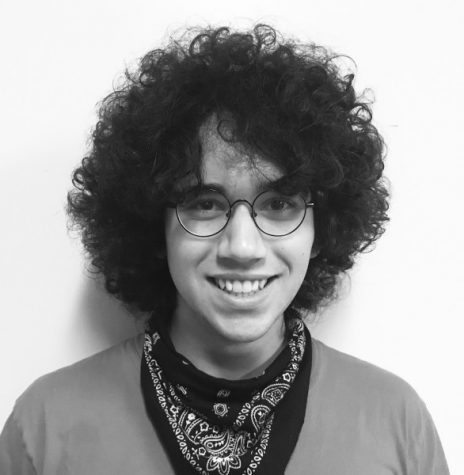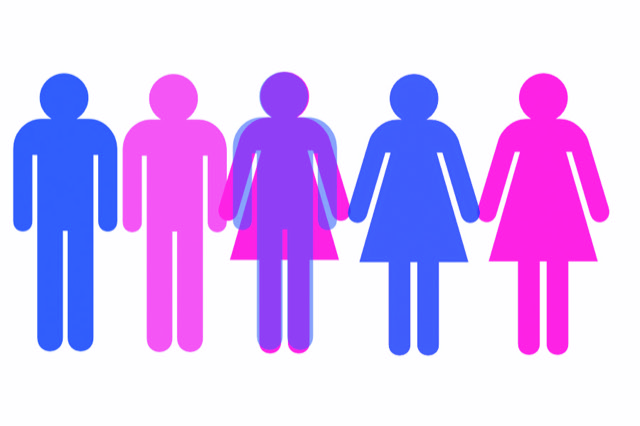Universities must work toward complete freedom of gender expression to accommodate students

Most spectators of the sparring match involving freedom of speech might get caught up in the misconception that the argument is a binary one — conservatives defend all free speech while liberals make a case for limited restrictions on it. In some circumstances, that is an accurate summary. But such an oversimplification obscures the left’s efforts to use safe spaces to protect free speech on one particular terrain: gender expression.
Considering how the broad umbrella of speech extends beyond simple verbal communication, today including burning a flag or wearing black armbands, it is more than reasonable to expect gender expression to likewise be covered. Both through literal and symbolic speech, how we stand, dress, speak, move and behave all collectively make a statement about how we non-binary students see ourselves and how we deserve to be seen.
As defined by the Gill Foundation, a leading sponsor of LGBTQ+ causes in the U.S., gender expression “refers to the ways in which we each manifest masculinity or femininity … Our appearance, speech, behavior, movement and other factors signal that we feel – and wish to be understood – as masculine or feminine, or as a man or a woman.”
The Gill Foundation is seeking its next President to continue the fight for LGBT equality. Check it out here – https://t.co/GQeWjt20ne
— Gill Foundation (@GillFoundation) August 30, 2017
Like other forms of speech, free gender expression contributes to a vibrant and highly educational “marketplace of ideas” — it allows for ideas about gender and its malleability to circulate and contribute to everyone’s understanding of it.
If any Tulane students or professors are concerned about the university’s academic integrity, they should take into account the educational opportunities lost when new ideas on gender are repressed by fear of harassment. For instance, Columbia University in New York, while criticized for shutting down right-wing views with safe spaces, has fostered such an inclusive student community that eight different trans-friendly student groups can thrive. It is no coincidence few universities have as vibrant and sophisticated a dialogue on gender and queerness as Columbia does.
As members of the LGBTQ+ community, especially younger members, become increasingly conscious of their identities and how to express them, freedom of gender expression becomes increasingly critical to respect. Safe spaces, far from obstructing free speech, secure for students the freedom of gender expression without harassment.
When making key decisions around free speech and safe spaces, such as granting Turning Point USA — a far-right, anti-safe-space organization with a racist founder — club status, Tulane University and its leadership should take into consideration how much safe spaces protect free speech before justifying their decisions under the First Amendment.
This is an opinion article and does not reflect the views of The Tulane Hullabaloo. Dylan is a freshman at Newcomb-Tulane College. They can be reached at [email protected].
Leave a Comment
Your donation will support the student journalists of Tulane University. Your contribution will allow us to purchase equipment and cover our annual website hosting costs.




TCO • Dec 3, 2017 at 2:37 pm
Unfortunately, your thesis that “safe spaces protect free speech” is entirely contradictory. The definition of free speech is that everyone has a right to say what they want (with reasonable limitations for safety, e.g. yelling fire in a movie theatre). You laude Columbia University for “shutting down right-wing views”, which therefore by definition, is anti free speech. You defend this by postulating that safe spaces, “secure for students the freedom of gender expression without harassment” which, while very well may be true, I ask why should the right for gender expression take priority over any other viewpoints freedom of expression? Is a system that picks and chooses which viewpoints and ideas have the right to be expressed truly a manifestation of free speech, or entirely the opposite?
I am not denying the concept that safe spaces may have some benefits to society, however to assert that safe spaces promote free speech is entirely nonsense. And ultimately, I personally would argue that the detriments to safe spaces, especially in academic communities meant to foster critical thinking, far outweigh the positives. In the words of the famous George RR Martin, “When you tear out a man’s tongue, you are not proving him a liar, you’re only telling the world that you fear what he might say.” Any forum which silences certain arguments or viewpoints is bound to become a static echo chamber.